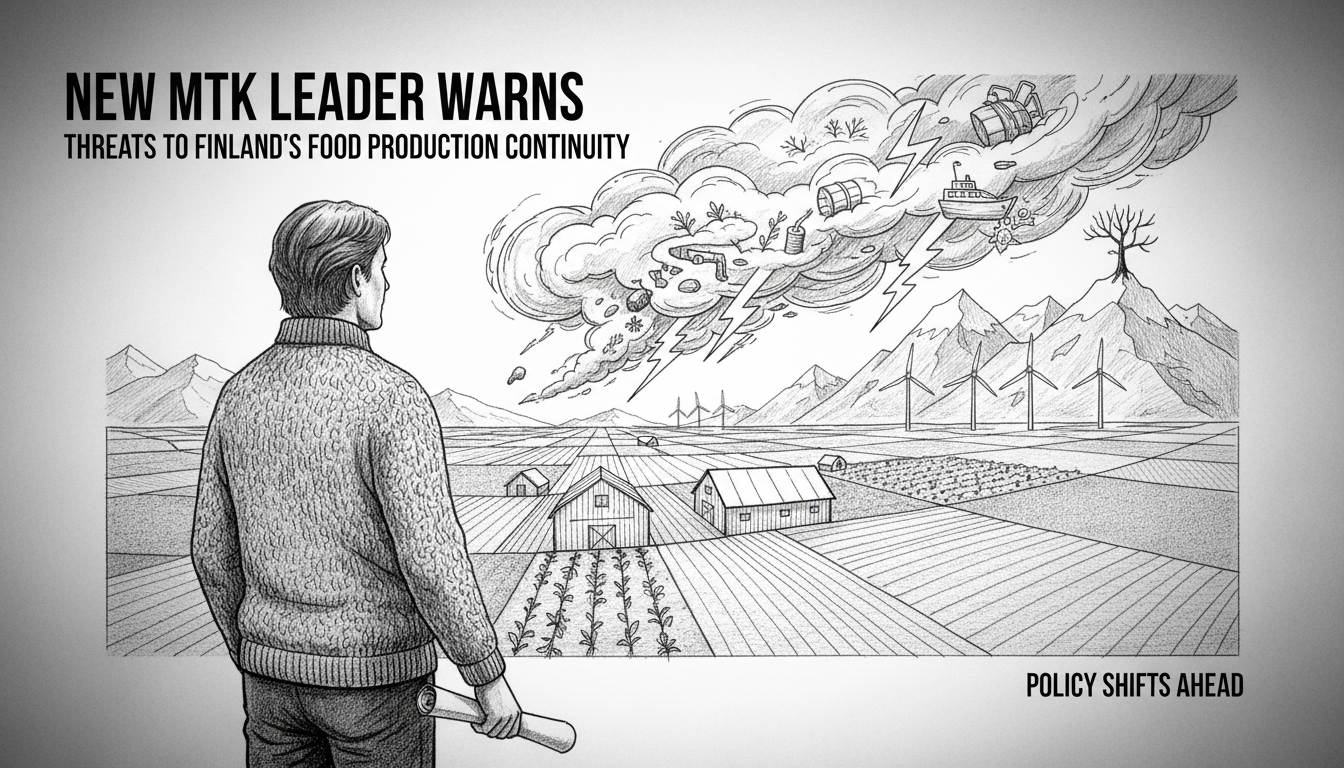Finland's Central Union of Agricultural Producers and Forest Owners faces a pivotal leadership transition as Tero Hemmilä assumes the organization's presidency. The newly elected chairman brings extensive food industry experience to his role, having emphasized during the selection process his commitment to representing a new direction for the agricultural advocacy group. Hemmilä's background in food manufacturing marks a significant departure from traditional MTK leadership profiles, signaling potential strategic shifts for Finland's primary agricultural interest organization. The 58-year-old leader recently participated in the MTK chairman panel at the Field Crop Seminar in Lahti during late October, where he outlined his vision for addressing systemic challenges in Finnish agriculture.
Finnish food production continuity faces genuine threats that demand immediate policy attention, according to the incoming MTK chairman. Hemmilä's warning comes amid ongoing debates within the Eduskunta about agricultural subsidies and food security measures. The Finnish Parliament continues to examine how domestic production can withstand global market fluctuations and climate-related disruptions. Several government ministers have acknowledged the need for strengthened food security frameworks, particularly as Finland maintains its position within the European Union's Common Agricultural Policy structure.
Agricultural policy specialists note that Hemmilä's industry background could bridge gaps between producers and processors. His appointment arrives during critical negotiations about Finland's national strategic food reserve requirements and emergency production capacity. The Ministry of Agriculture and Forestry currently reviews contingency plans for maintaining basic food supplies during potential crises. European Union directives on food security and agricultural sustainability further complicate the national policy landscape, requiring careful coordination between Helsinki and Brussels.
Finland's agricultural sector contends with multiple challenges including production costs, workforce shortages, and environmental regulations. The MTK represents approximately 45,000 farm and forest owners across the nation, giving the organization substantial influence in policy discussions. Historical context shows that Finnish agricultural policy has consistently balanced between supporting domestic production and complying with EU market regulations. Previous governments have faced difficult choices between maintaining production levels and implementing environmental protections.
The new chairman's industry perspective might reshape how MTK approaches food processing relationships and value chain development. Political observers suggest that Hemmilä's leadership could foster more pragmatic dialogue between agricultural producers and the Social Democratic Party-led government. Finland's coalition government includes parties with differing agricultural priorities, creating complex negotiation dynamics around farming subsidies and environmental standards. The upcoming parliamentary session will likely address food security legislation as part of broader national preparedness strategies.
Agricultural producers seek clearer signals from the government about long-term support mechanisms and crisis management protocols. The European Union's Farm to Fork strategy introduces additional considerations for Finnish policymakers attempting to balance sustainability with production continuity. International readers should understand that Finland's northern location creates unique agricultural challenges, including shorter growing seasons and specific climate vulnerabilities. The country's food self-sufficiency rates vary significantly by product category, with grain production generally exceeding domestic consumption while certain other commodities require substantial imports.
What practical changes might Hemmilä's leadership bring to Finnish agricultural policy? His industry background suggests potential emphasis on processing efficiency and market access rather than solely focusing on production subsidies. The MTK under his direction may advocate for policies that strengthen entire food value chains rather than isolating farm-level support. This approach could align with both economic efficiency goals and food security objectives, though it might require difficult adjustments for some producers. The coming months will reveal whether this leadership transition signals substantive policy shifts or maintains established agricultural advocacy patterns.

